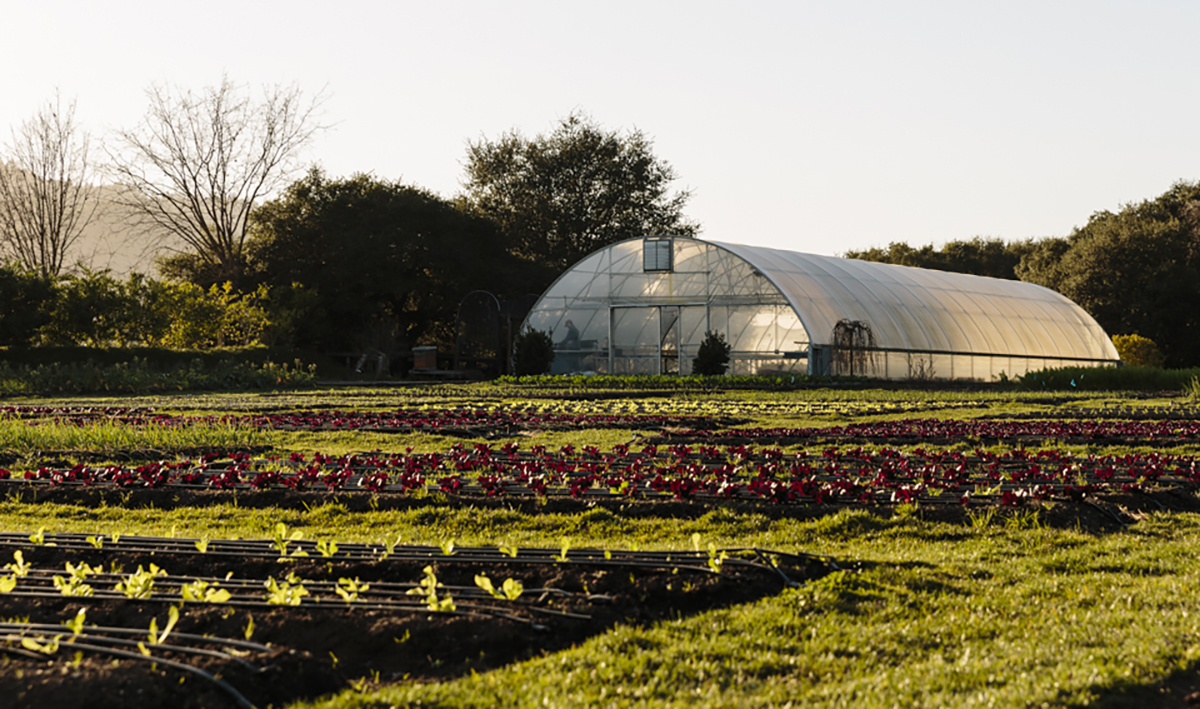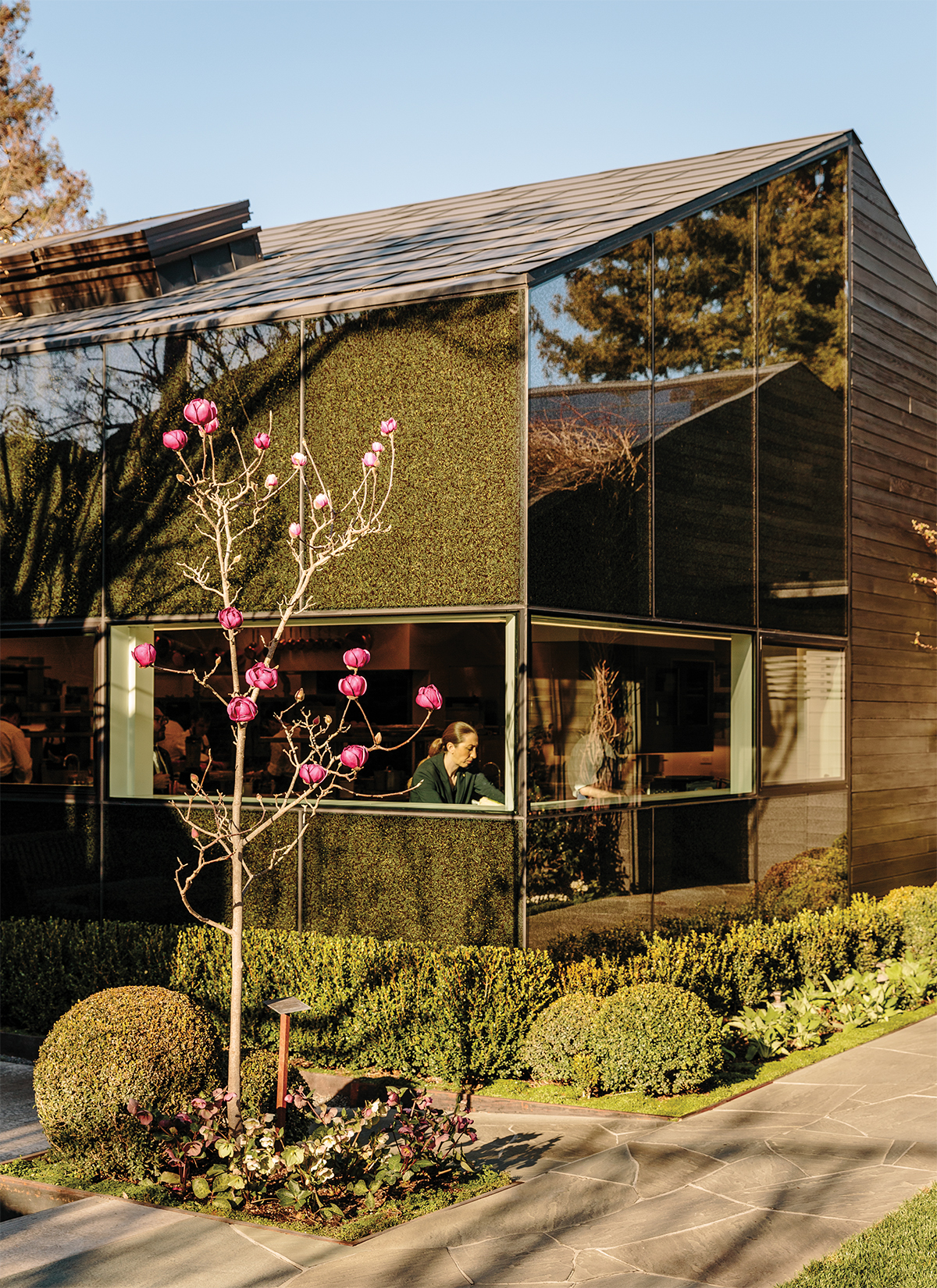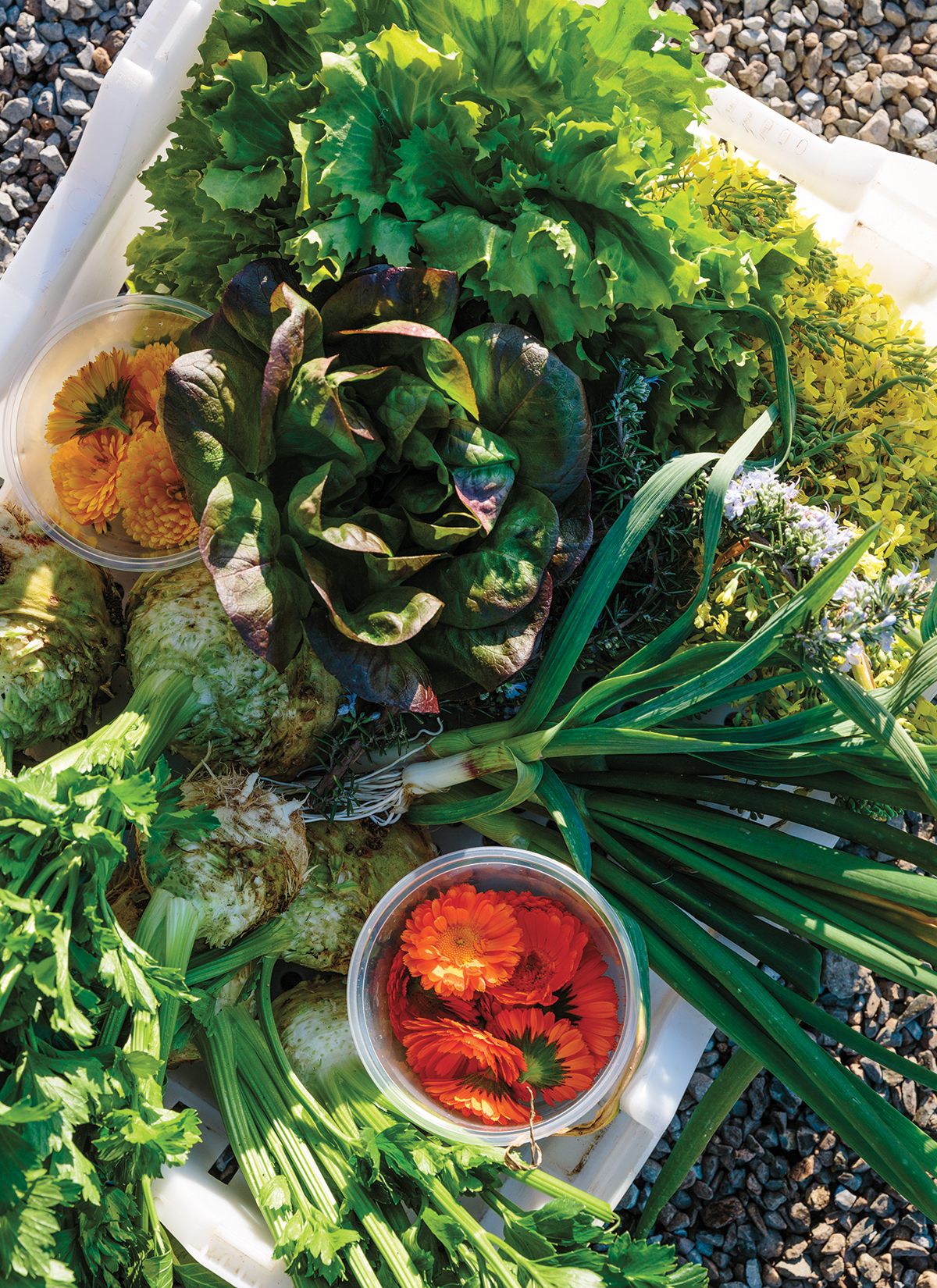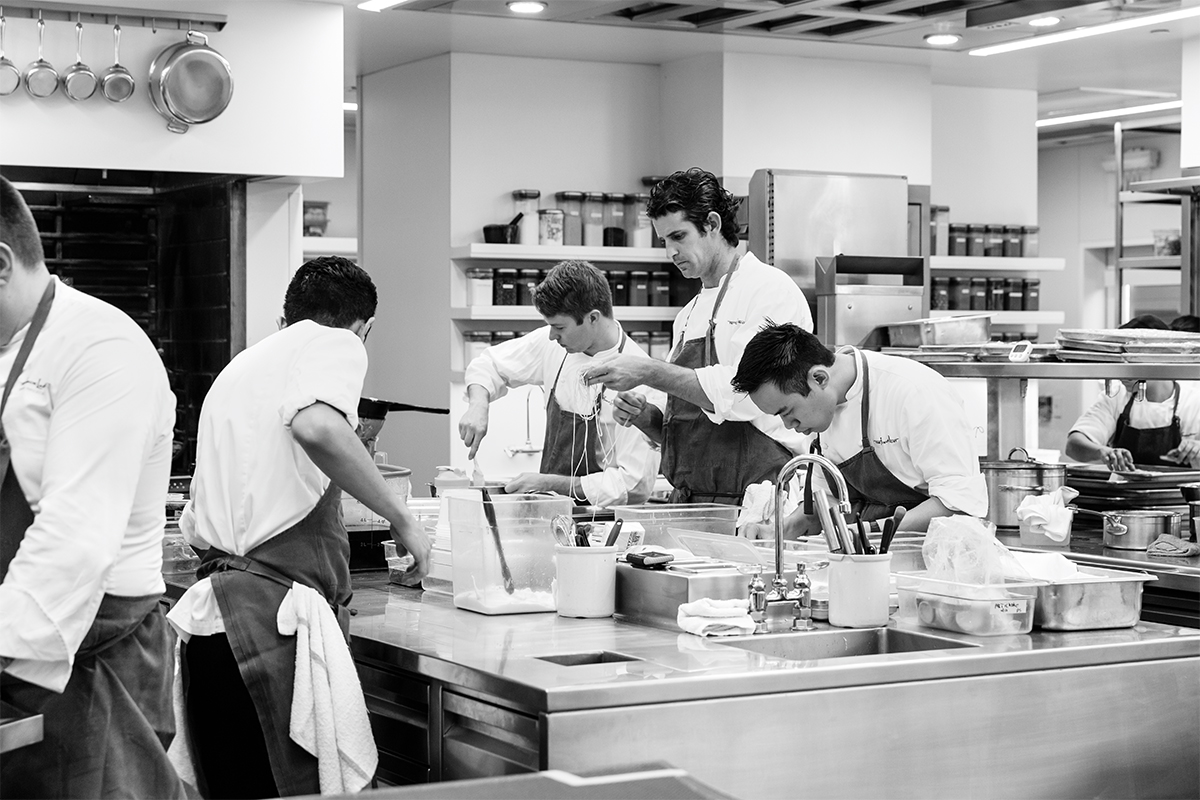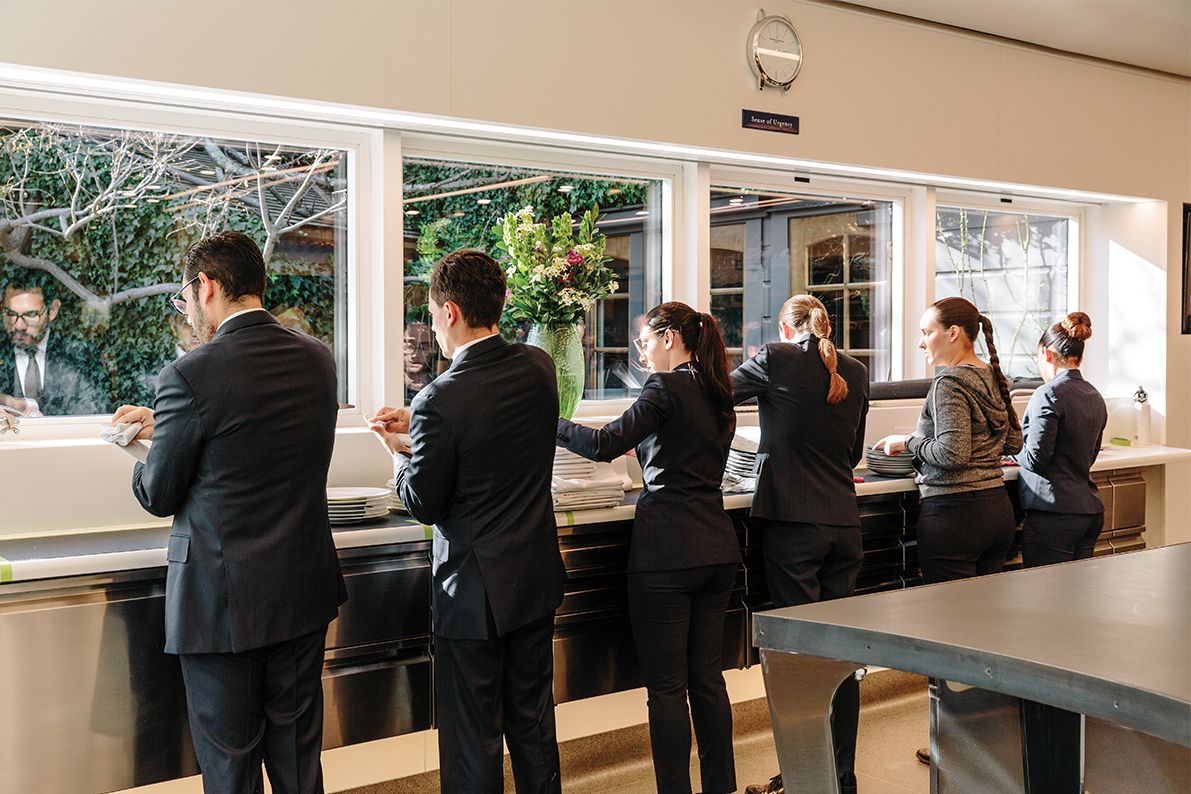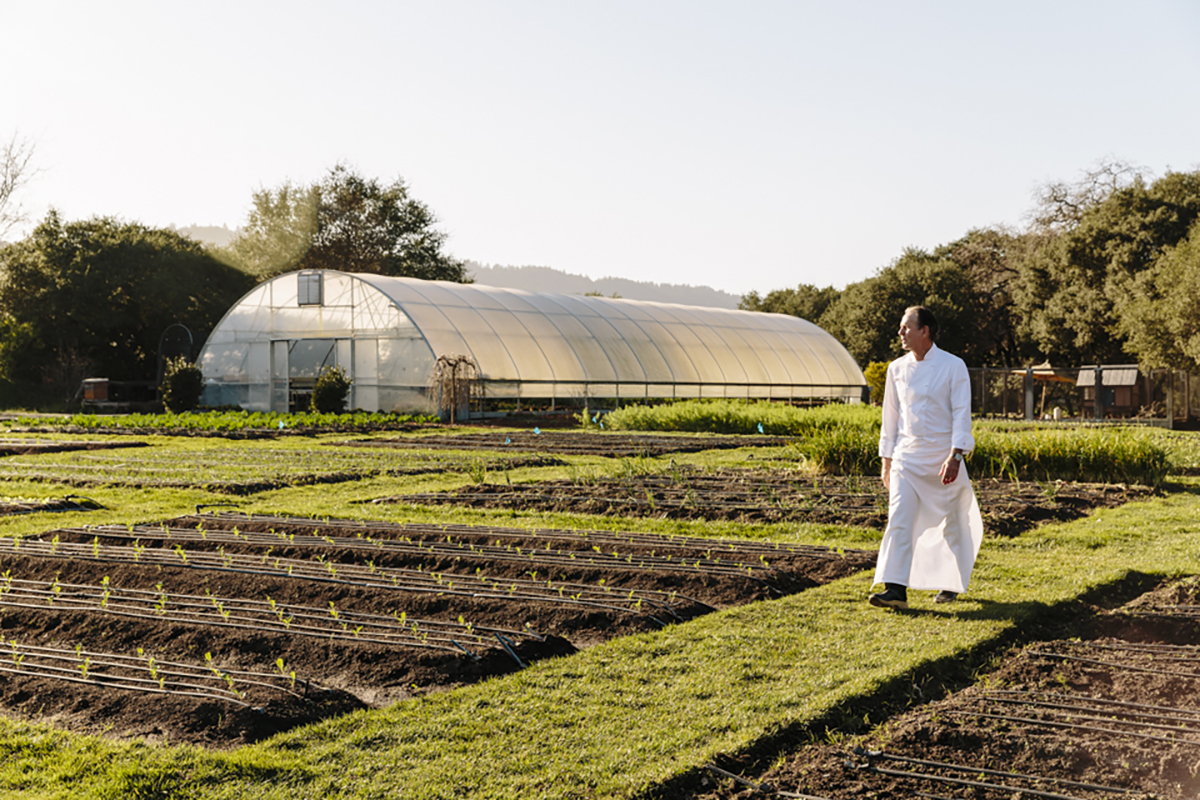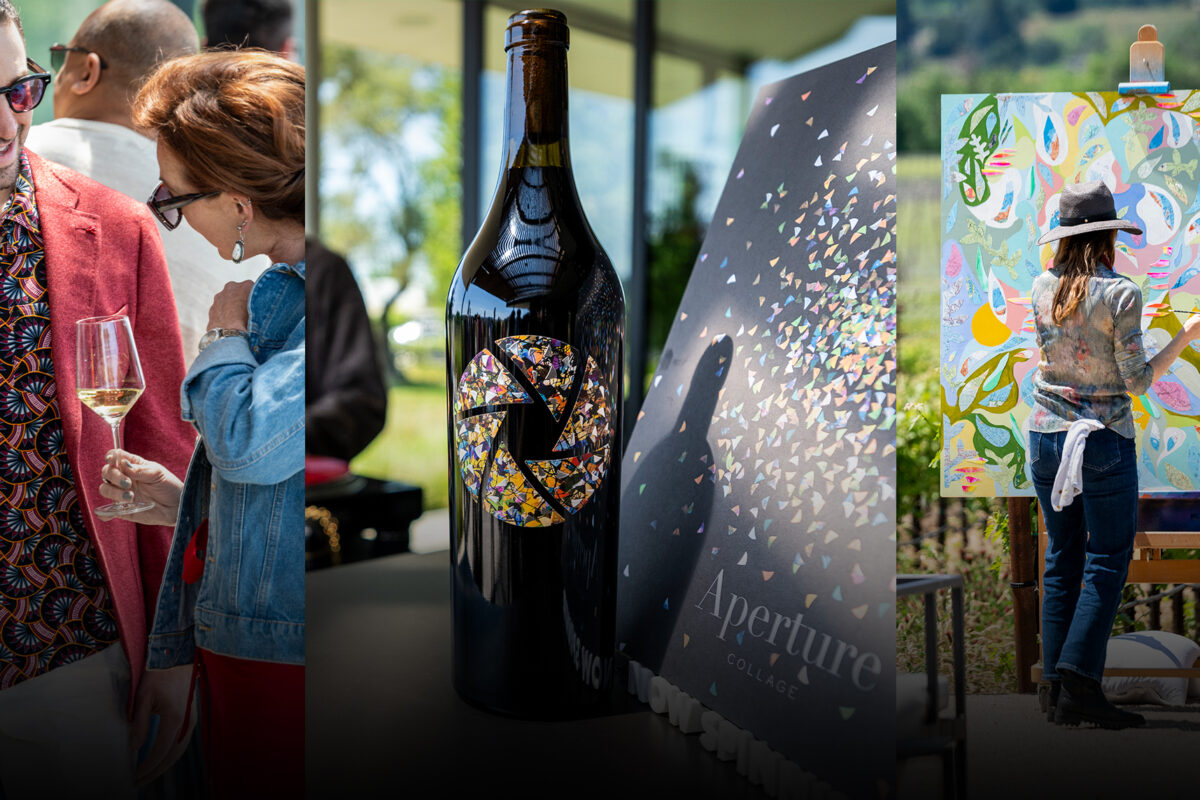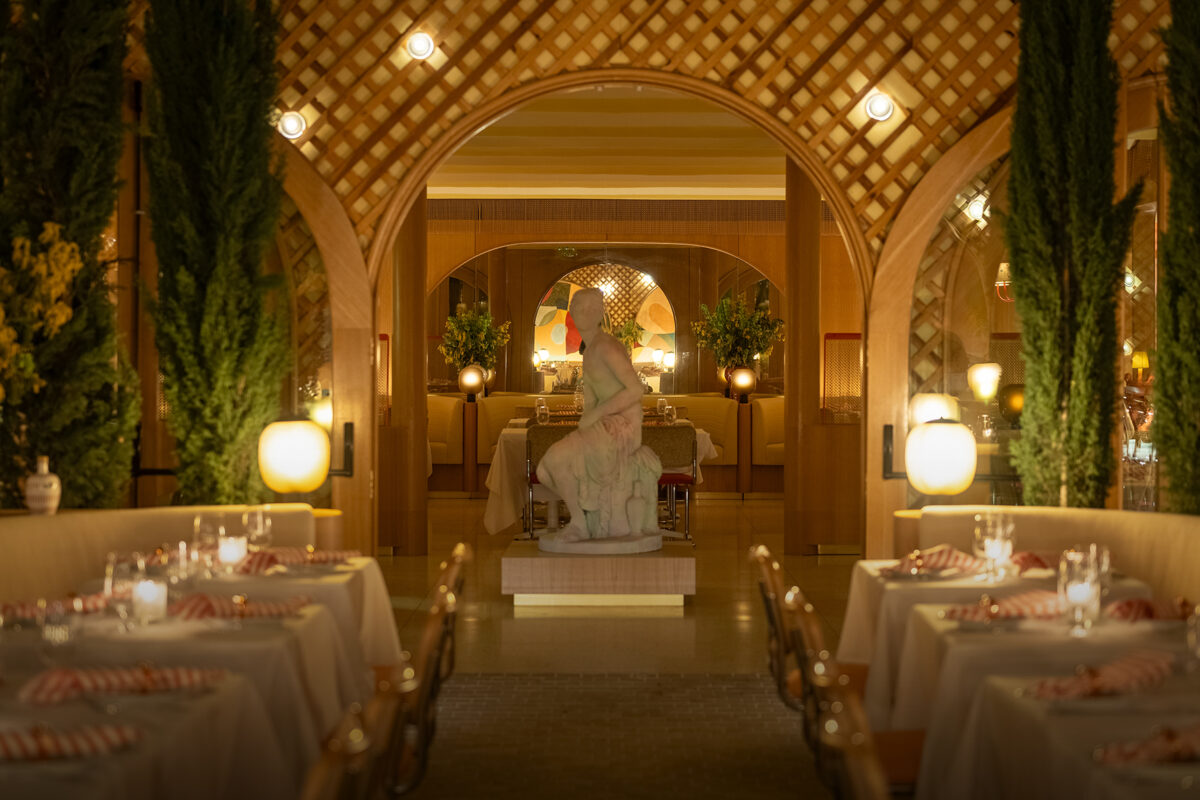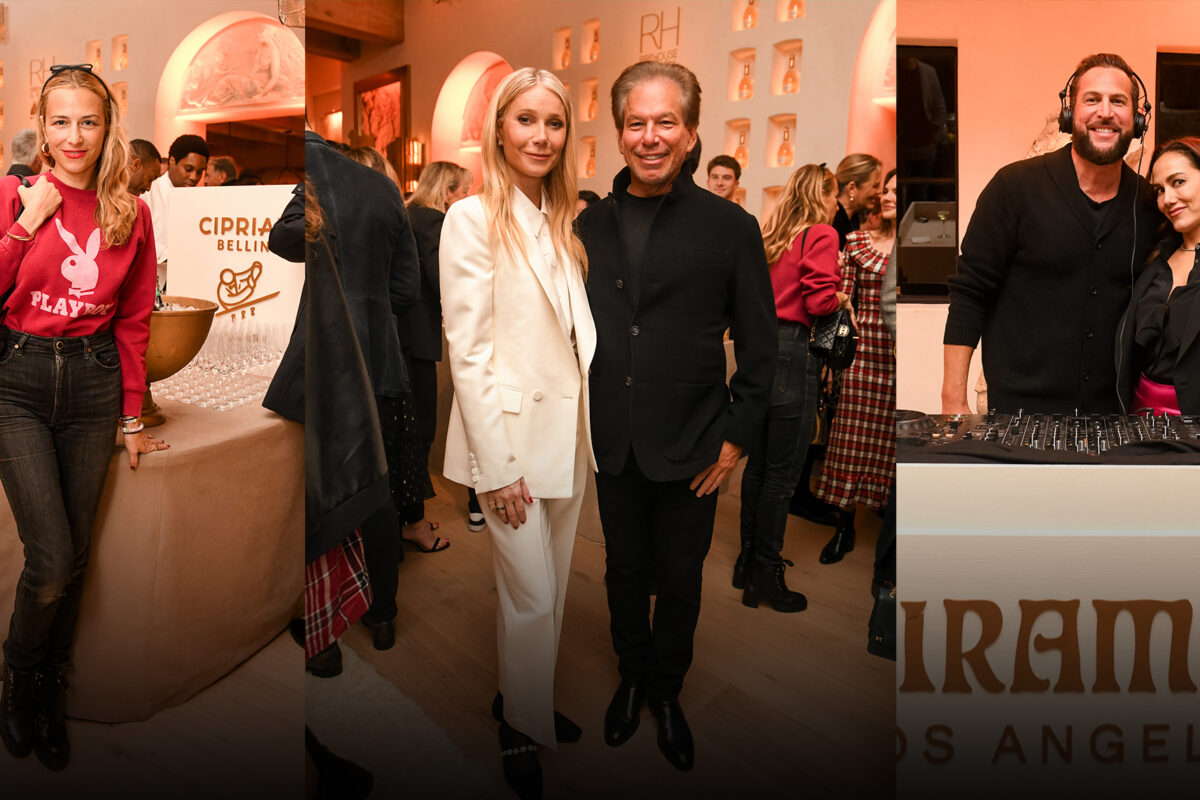The chef behind The French Laundry on empire-building and sustainability
Words by CATHERINE BIGELOW
Photography by ALANNA HALE
On a misty February morning in Yountville, Calif., the honeybees are quiet. Only a few of the fuzzy insects flit about their stacked hive in a corner of the 3-acre culinary garden that supplies and informs seasonal daily menus at The French Laundry.
That world-renowned temple of gastronomy, expertly assembled by equally renowned chef Thomas Keller, is, literally, a stone’s throw across a quaint two-lane street from this working, but public, garden.
Across the street from THOMAS KELLER’s three-Michelin-star restaurant THE FRENCH LAUNDRY is his culinary garden (which supplies and informs his vaunted daily Chef’s Tasting menu).
“If you really want to address carbon footprints, look at factory farms”
Thomas Keller
This Edenic garden is marked by a wood crèche displaying a legend of the crops growing in 51 beds — such as his famous “24-karat” carrots, and romaine lettuce, which blooms like roses inside the protected “Hoop House” — for his Yountville restaurants. There’s also a coop of Rhode Island Red hens, which daily lay some 20 golden-yolked orbs for the kitchen.
In its France 2020 Guide, Michelin introduced the “green clover” for standout sustainable restaurants. But that concept has long existed in Keller’s playbook. “We want to ensure we’re taking care of the land across the street, rotating crops, nurturing the soil,” he says. “But I don’t believe sustainability should only be perceived as ingredients or a geographical area. Sustainability should encompass the best possible ingredients and support our communities and individuals, how we treat each other.”
From left: THOMAS KELLER inspects freshly harvested Tango celery. Labeled jars of spices and aromatics in the pantry of THE FRENCH LAUNDRY annex.
Keller, who is well versed in culinary history, explains, “Going back to Marco Polo and the spice route, travel was about discovering food. Switzerland is famous for chocolates, but there’s not a cocoa plantation anywhere in Europe. So suddenly, because it’s now fashionable to use these words, we’re arguing about what is local while drinking a cup of imported coffee and sounding like worse hypocrites than before. … Sustainability is important. But as it relates to a chef, that makes me bristle. If you really want to address carbon footprints, we should look at factory farms.”
But Keller applies a wide lens to sustainability, one that extends far beyond how a carrot is raised: “We buy some of our lobsters and mussels from Deer Isle, Maine. There’s nothing near there. But we see sustainability as the opportunity to sustain this community of doctors, lawyers, teachers, priests, librarians. That community relies on their fishermen to sustain those fisheries and have access to wider markets.”
Closer to home, his establishments have been a boon for small Northern California purveyors, such as The Apple Farm in Philo, owned by Sally Schmitt, and Petaluma cheesemonger Soyoung Scanlan, who in 1999 founded Andante Dairy and also manages The French Laundry’s cheese program. “My business wouldn’t exist without his support and respect,” Scanlan says. “His entire career, Thomas has pursued perfection, professionalism and excellence. I’ve met the world’s leading young chefs, training with Thomas in his kitchen. The French Laundry is not only the best restaurant, it’s the best school in the world for modern cooking.”
To THOMAS KELLER, the new wood-and-glass kitchen — inspired by I.M. PEI’s glass pyramid at the LOUVRE — represents the link between THE FRENCH LAUNDRY’s storied past and its bright future.
Keller, who’s received almost every accolade in the book (from a James Beard Lifetime Achievement Award to France’s highest civil honor, being named a Chevalier of the Legion of Honor), has trained a list of heralded proteges as varied as The French Laundry’s 15,000-bottle-capacity wine cellar: Grant Achatz, the molecular gastronomist, helms the three-Michelin-star Alinea in Chicago; Corey Lee founded the three-Michelin-star restaurant Benu in San Francisco; and Eric Ziebold, former French Laundry chef de cuisine, steers two one-Michelin-star restaurants, Kinship and Métier, both in Washington, D.C.
Keller speaks with a quiet, fatherly pride of staff and alumni, and joyfully celebrates them on his lively Instagram feed. Meticulous mentorship is a key ingredient of his success and legacy.
That includes Ment’or, a nonprofit foundation dreamed up by legendary chef Paul Bocuse, who engaged his son, chef Jérôme Bocuse; chef Daniel Boulud; and Keller as founding trustees to provide structure for young chefs competing in the Bocuse d’Or, a biennial culinary competition in Lyon, France.
“For me, it’s important to run French Laundry at a very high level. But the bigger picture is setting aside our egos and increasing our profession’s standards by giving opportunity to young individuals,” explains Keller. “Look at Kaelin [Ulrich Trilling] down the street at La Calenda; he’s only 27 but does a terrific job with Oaxacan cuisine.”
Edible flowers, romaine lettuce, baby leeks and Tango celery harvested from THE FRENCH LAUNDRY’s culinary garden.
“Suddenly we’re arguing about what is local while drinking imported coffee”
Thomas Keller
The initials TFL are shorthand for the enterprise comprising Keller’s restaurants (Bouchon, Bouchon Bakery, La Calenda, Ad Hoc + Addendum) and culinary emporium (Finesse, The Store), which spill like pearls along Washington Street, Yountville’s main drag.
Keller still reigns as the only American-born chef to hold three Michelin stars at two different restaurants simultaneously — The French Laundry and his Manhattan restaurant, Per Se.
There’s also his line of best-selling cookbooks; global collaborations (including All-Clad and Cangshan Cutlery steak knives); and a new caviar partnership, Regiis Ova, with former Tsar Nicoulai Caviar CEO Shaoching Bishop.
In 2019, Keller opened TAK Room, an ode to Continental cuisine at Hudson Yards in New York. The year prior, he resuscitated the old Surf Club at a new Four Seasons Hotel near Miami. But The French Laundry is his first success, and last year, Keller and his team celebrated its 25th anniversary.
This year, Keller recognized another anniversary: He paid homage to The French Laundry’s former owners, the late Don Schmitt (a former Yountville mayor who passed away in 2017) and his wife, chef Sally, a California cuisine pioneer who in 1977 renovated the rustic circa-1900 National Register of Historic Places building (formerly a saloon, brothel and actual French laundry), creating a beloved destination of handcrafted dining in this once sleepy village.
“At our anniversary, I stood at the entrance, greeting 650 guests. So I had time to think,” recalls Keller, who turns 65 this October. “I realized I was being a bit selfish, in the sense I was celebrating 25 years of Thomas Keller at The French Laundry. … The French Laundry is already a generational restaurant — Don and Sally passed it to me; I’m sure I’ll pass it on to someone else — and we want to maintain that heritage. We always talk here about ‘standing on the shoulders of those who came before us.’ That’s true of Don and Sally. And I’m very grateful for the opportunity they gave me.”
Chefs prep for service in the refreshed, state-of-the-art kitchen redesigned by SNØHETTA and THOMAS KELLER.
Keller’s own story began at Camp Pendleton, in Oceanside, Calif., where he was born in 1955, the youngest of five boys. His late father, Edward, was a Marine Corps officer. Following his parents’ divorce when he was a young boy, his mother, Betty, moved the family to Florida, where Keller’s career was sparked as a teenager when he worked as a summer dishwasher at the Palm Beach Yacht Club.
“I was always in the kitchen, so I couldn’t play baseball. But I’ve always said I run a baseball franchise at night,” says Keller with a laugh. “Like a baseball diamond, a kitchen, for me, feels the same. You have a team of people executing different disciplines. Their skills, their stations, their positions are all different — server, maitre d’, sommelier, reservationist — for the sole purpose of winning that night’s game.”
In 2014, Keller, working with the architectural team Snøhetta (designers of the 2016 San Francisco Museum of Modern Art expansion), embarked on a three-year, $10 million-plus renovation of his flagship property. The new kitchen and annex has revamped areas for a pantry, butchery, produce receiving and breakdown, offices and a wine cellar rendered in California redwood shelves that one navigates via a sliding library ladder.
The French Laundry has expanded its high-efficiency geothermal loop system that controls temperature variances for the hot water, radiant heat and refrigeration. New solar panels reduce energy costs and supply their own batteries. The building exteriors are preserved using a Japanese-style wood treatment, eliminating the need for paint touch-ups and toxic weatherproofing.
Picture windows offer the staff courtyard views while they work.
The French Laundry’s heralded casual-yet-sumptuous service and design was developed by Laura Cunningham, Keller’s decades-long collaborator. A former general manager of The French Laundry, St. Helena native Cunningham now serves as the Thomas Keller Restaurant Group’s vice president of branding and creative development. Her exquisite, precise vision informs everything from marketing and philanthropic partnerships to the five-star guest experience at all of Keller’s establishments. Last spring, Cunningham was honored by the Culinary Institute of America with the prestigious Augie Award, conferred upon those the institution designates as “masters of hospitality.”
Bowls of handcrafted chocolate truffles, candies and macarons — a sweet finale to the multicourse Chef’s Tasting menu.
Keller no longer mans the stoves for a full-service shift. But when he’s in town, he’s in the kitchen with the chefs at The French Laundry, talking, tasting and mentoring. Though he’s loath to admit it, Keller now feels more like a symbol in the kitchen. “I still love to cook with the young chefs, but I can’t get in their way too much,” he says. “That would be like Derek Jeter deciding he wants to play shortstop again. You realize you can’t participate at the same level you did when you were younger. So you organize your structure around the purpose of your restaurant, to relieve yourself from being the franchise player. If you haven’t achieved that, then you haven’t done service to the purpose you started with: running a great restaurant.”
Keller divides most of his time between The French Laundry and Per Se. There are currently no plans for any new projects. Unless, of course, this golf devotee, who recently played Pebble Beach, decides to hang up his apron to focus on winning the Pro-Am cup.
His daily goals remain teaching, training and mentoring staff on their purpose in the kitchen. “If you do those three things correctly, then they become better than you,” Keller explains. “Because if they’re not better than you, you’ve done a shitty job.”
THOMAS KELLER strolls through his culinary garden.
Feature image: Across the street from his three-Michelin-star restaurant THE FRENCH LAUNDRY, chef THOMAS KELLER in his culinary garden (which supplies and informs his vaunted daily Chef’s Tasting menu).
This story originally appeared in the Spring 2020 issue of C Magazine.
Discover more FOOD news.

